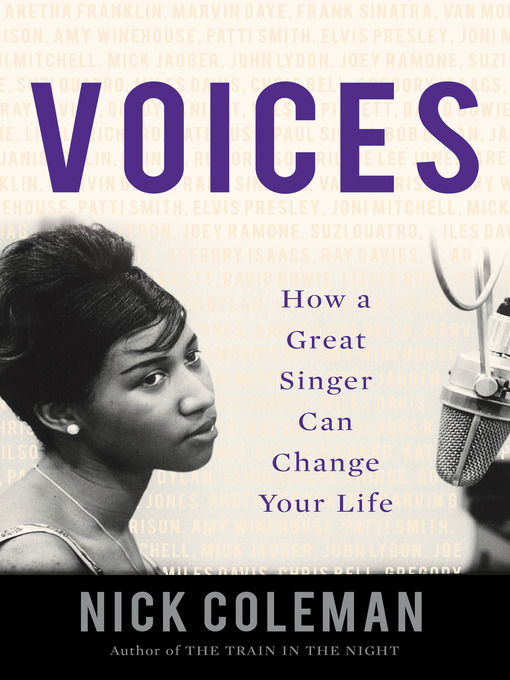
A personal exploration of what singing means and how it works, Voices is a book about our deepest, most telling relationships with music. Nick Coleman examines the act of singing not as a performance, but as a close, difficult moment of hopeful connection. What does it do to us, emotionally and psychologically, to listen hard and habitually to somebody else’s singing? Why is human song so essential to our lives? The book asks many other questions, too: Why did Jagger and Lennon sing like that (and not like this)? Billie, Janis, Amy: must the voices of anguish always dissolve into spectacle? What makes us turn again and again to a singing human voice?
The history of postwar popular music is often told sociologically or in terms of musicological influence and innovation in style. Voices offers a different, intimate perspective. In ten discrete but cohering essays, Coleman tackles the arc of that history as an emotional experience with real psychological consequences. He writes about the voices that have affected the ways he feels about and understands the world—from Aretha Franklin to Amy Winehouse, Marvin Gaye to David Bowie. Ultimately, Voices is the story of what it is to listen and be moved—what it is to feel emotion.
-
Creators
-
Publisher
-
Release date
November 13, 2018 -
Formats
-
Kindle Book
-
OverDrive Read
- ISBN: 9781640091160
-
EPUB ebook
- ISBN: 9781640091160
- File size: 912 KB
-
-
Accessibility
-
Languages
- English
-
Reviews

Loading
Formats
- Kindle Book
- OverDrive Read
- EPUB ebook
subjects
Languages
- English
Why is availability limited?
×Availability can change throughout the month based on the library's budget. You can still place a hold on the title, and your hold will be automatically filled as soon as the title is available again.
The Kindle Book format for this title is not supported on:
×Read-along ebook
×The OverDrive Read format of this ebook has professional narration that plays while you read in your browser. Learn more here.